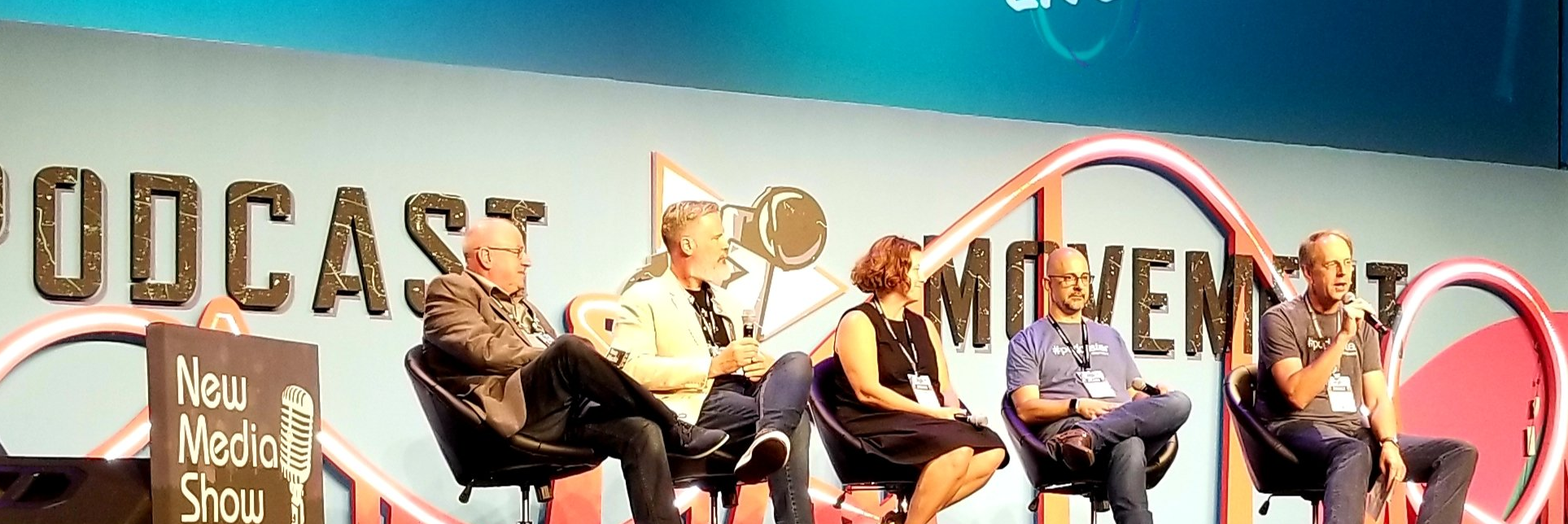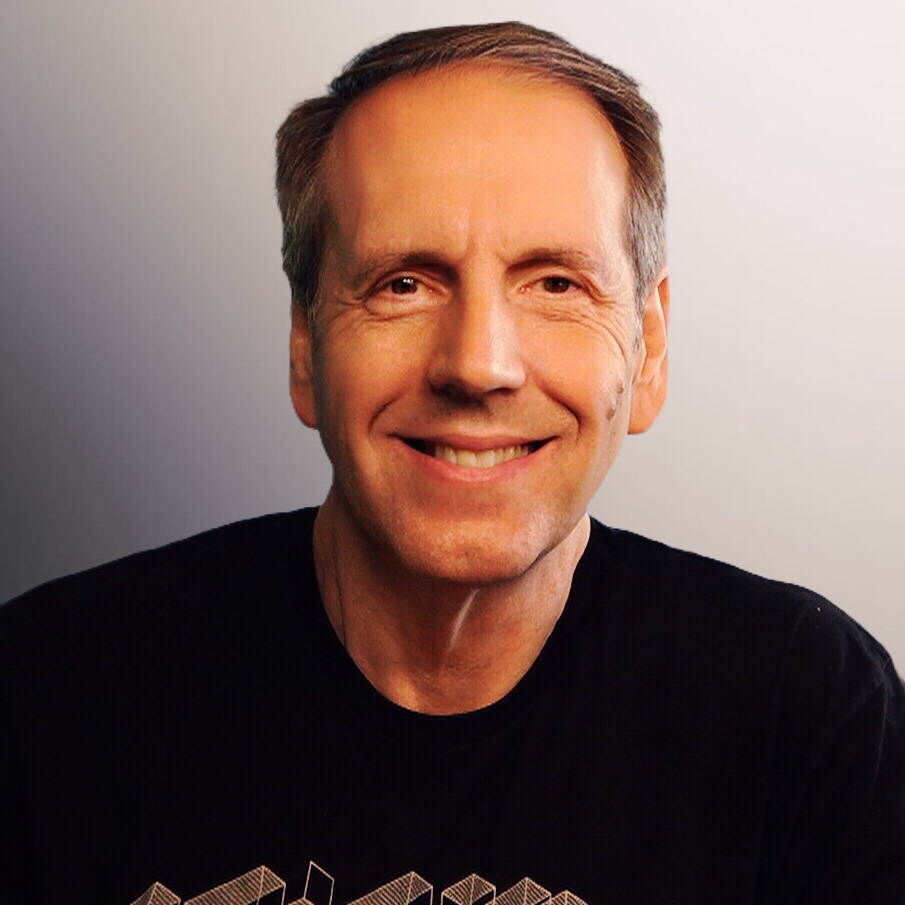By Rob Greenlee, Co-Host of NewMediaShow.com and Host of Trust Factor with Rob Greenlee

Podcasting has always been an audio and video medium, plus PDF files, a user request-based distribution and consumption medium. Some more recent medium participants and consumers think that podcasting is an audio-dominated distributed medium via RSS feeds. These folks are incorrectly perceiving podcasting as an audio-only medium.
Podcasting is becoming so much more TODAY.
The podcasting landscape has been shifting for a few years, especially with platforms like YouTube and Spotify bringing back the focus to video AGAIN and blurring the lines between audio and video content. The question is, who started this evolution back to more videos? was it viewer consumers of videos on YouTube or YouTube and Spotify? Well, I think YouTube and Spotify and platforms like StreamYard and Zoom are all contributing to this expansion of perception of what a podcast is TODAY. So, as we navigate the media world of 2023, what constitutes a podcast?
The Traditional Definition of a Podcast:
Historically, a podcast was a series of spoken-word content focusing on various topics. These audio and video recordings were distributed through RSS feeds as MP3 and MP4 media files to be downloaded or progressively downloaded playback, allowing listeners to follow and access new episodes on their devices.
The YouTube Podcasts Paradigm:
In an intriguing move, YouTube has begun to classify video playlists as podcasts, especially when these playlists follow a thematic or episodic structure similar to traditional podcasts. By integrating these “video podcasts” into its new YouTube Music area, the platform acknowledges the convergence of music, spoken word content, and visual elements. This move expands the definition of podcasting by suggesting that when serialized and thematic, visual content is increasingly perceived by YouTube viewers as much as a podcast as an RSS-only distributed audio and video counterpart.
Spotify’s Video Foray:
Not to be left behind, Spotify is dabbling and expanding into video content, which is increasingly being seen as Spotify expanding into video podcasting. Though Spotify initially launched audio podcast content, it now provides creators with tools to publish videos directly alongside their ingestion of audio files from podcast RSS feeds. This move positions Spotify as a competitor to YouTube in the “video podcast” space, reflecting the changing consumer appetite for versatile content that can be watched and or listened to.
Implications for Content Creators:
For creators, these changes mean more comprehensive tools and platforms to disseminate content. They can now cater to audiences who prefer traditional audio podcasts and those who lean toward video content. This flexibility can potentially expand their reach and offer diverse monetization opportunities.
The Essence of Podcasting:
Despite these changes, the essence of podcasting remains consistent: serialized content that delves deep into specific themes, stories, or topics. Whether in audio or video format, a podcast in 2023 is about creating episodic content that resonates with its audience, offering insights, entertainment, or information in digestible chunks.
The podcasting landscape of 2023 is more diverse and dynamic than ever. With platforms like YouTube and Spotify redefining what a podcast can be, it’s an exciting time for creators and consumers. While purists might argue that “podcasts” should be reserved exclusively for audio content, the industry’s evolution suggests a more inclusive future where audio and video coexist under the podcasting umbrella. Regardless of the medium, the content’s quality, relevance, and engagement will determine its success.
Evolving Consumer Habits:
With the ubiquity of high-speed internet and advanced mobile devices, consumers in 2023 have become more platform-agnostic, seeking content that can cater to their dynamic lifestyles. They might listen to an audio podcast during their morning run but switch to the video version of the same episode while having lunch. This fluidity between audio and video has driven platforms to accommodate both formats, reflecting the multifaceted consumption habits of the modern audience.
Niche Content and Personalization:
As the definition of podcasting expands, so does the variety of content. With the inclusion of video, genres like instructional guides, visual tours, and even short episodic dramas have found a home within podcasting platforms. Personalization algorithms, powered by advanced AI, ensure that consumers are exposed to audio and video content tailored to their preferences, further blurring the traditional boundaries.
Interactivity and Immersion:
One significant advantage of live video podcasts in 2023 is the potential for interactivity. Platforms have begun incorporating features allowing viewers to interact directly with the content – polls, Q&A sessions, or clickable links embedded within videos. This interactive layer adds a dimension of immersion, transforming passive listeners into active participants.
Challenges and Critiques:
While many celebrate audio and video mergers within the podcasting realm, it’s not without its critics. Some argue that the term “podcast” is becoming too diluted, losing its original identity. There are also concerns about discoverability; with the surge in content types, it can become more challenging for consumers to find high-quality content that resonates with them. Content creators, on the other hand, may feel pressured to produce both audio and video formats, stretching their resources thin.
The Future of Podcasting:
The trajectory suggests that the term “podcast” will continue to evolve. As augmented reality (AR) and virtual reality (VR) become more mainstream, we might see podcasts not just heard or seen but experienced in immersive 3D and 360-degree visual environments. Integrating haptic feedback and spatial audio could redefine what we consider a podcast.



